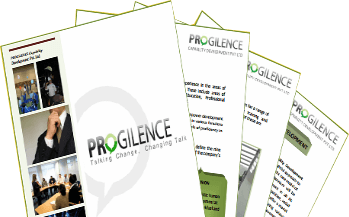School systems are delivering suboptimal results, but why things are likely to get worse

The school system is a legacy institution which has not evolved as rapidly as it needed to. The foundation of the school system was set on standardisation, where students were expected to learn standardised content and assessed through standards-based and standardised testing mechanisms. In earlier days relatively, low numbers of students were going to school, and it was the school systems job to get kids in order and align parenting to achieve school-based academic and developmental outcomes. Those students who were underachievers were considered abnormal; something was considered to be wrong with them. They were subjected to disciplinary measures, threats, remedial interventions at schools, parental interventions and clinical interventions, expected to catch-up or be consigned to a special school or such if not abandoned as a lost cause. However, what has happened over the years is that there has been a growing realisation among various people including students, parents, educationists, development specialists and people at large that it is okay to be different and to learn differently. It is also okay to learn different things too. Also, that, students as much as teachers, schools and school systems are different and involve non-standardised transactions owed to who they are and factors that are sometimes in the control of school authorities but mostly not.
There is a liberation from the need to conform and people are now no longer willing to accept their being branded as inadequate and abnormal, knowing that just because they learn differently, or are interested in different things, or value different things, they still can lead healthy, normal and successful lives and that they deserve respect, rights, and privileges as much as anyone else. Muted diversity is now finding self-acceptance, confidence, and expression, as it should. This factor is driving fundamental changes across society, its institutions, ideologies, and practices.
This, in turn, has put the pressure back on teachers and education systems to engage and offer education and developmental opportunities for children who are diverse, without necessarily forcing them to conform. Now given teacher-student ratios, standard curriculum, legacy effect of teaching practice and teacher education, limited funding and a host of other factors this situation is going to demand more skills, perspective and time of teachers to keep these kids engaged, offer customised educational and developmental content, facilitation and instruction and use non-standardised assessment methods while attempting to meet an academic performance standard increasingly being demanded by societal stakeholders (government, funding agencies, parents, educationists, etc) all within a timeframe. Given the added pressure from funding systems and evaluation criteria for performance of school and teachers, the overall situation has little hope of a turnaround. Of course, at another level to add to the complexity, the same goes for teacher educators and administrators responsible for teacher education and development.
What is happening concomitantly is that the employment world is changing; while large numbers of employers are complaining of lack of adequate skill sets among job candidates (graduates or school leavers), employers are also now creating competitive advantage based on innovation, usually derived by engaging outliers. These outliers inevitably are non-conformists, as these non-conformists become successful there is a more significant influence on people to pull away in the direction of their dreams and passions, with focus on becoming a master in one field rather than acquire the full set of complementary academically derived skill-sets and knowledge. Given that there are newer non-traditional learning opportunities in the environment now accessible to students including those who have not completed schooling, which are self-access learning materials and MOOCs, apart from certificate programmes from a host of private and other providers, learning is no longer confined and constrained to schools. Also, the hierarchy of learning as in the school curriculum structure will no longer hold good as students will engage in non-sequential, trans-disciplinary, self-paced learning. All this will contribute to unschooling as a growing trend. The products of these learning systems are increasingly going to meet employer needs, and therefore people are going to rely less on the schooling system for employment, which is what people see the primary benefit of the school system as.
The school system will still remain a place where most parents who do not have time to tend to their children will send them to, and those desirous of continuing their higher education (which has its own dynamics and challenges) will continue to patronise apart from many others. The pressure on teachers and the school systems to respond with changes will only keep growing though. The shackles of standardisation and educationists’ fetish for it will have to give way. Given the shortage of teachers in most countries and given the rapidity with which influences in the social sphere spreads, there will always be a lag in institutionalising ideologies, perspectives, practices and processes that need to be in place to cope with the changes outside of school and its influence on student behaviour, parental and other stakeholders’ expectations. This will make the situation increasingly untenable for school systems, being challenged continuously until redefined and evolved into a new construct. Till then expect a lot more dissatisfaction and pressure on the school system.




